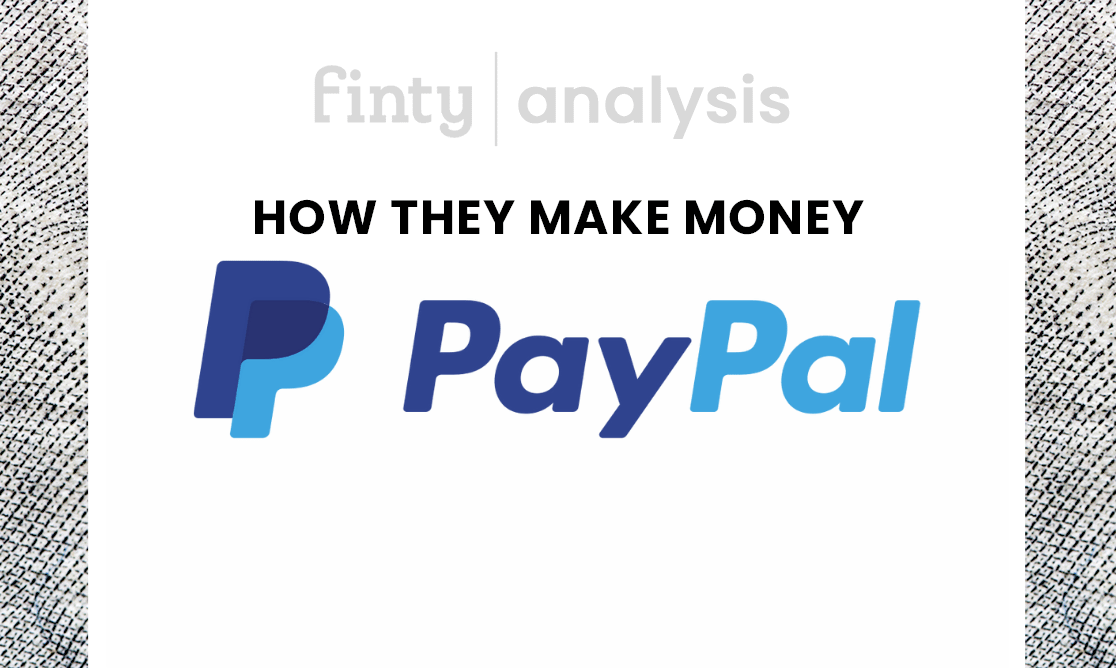- PayPal is a FinTech company allowing private users and businesses to send and receive online payments.
- PayPal has nearly 400 million registered users, processing over $930 billion in transactions each year.
- PayPal makes money by charging users transaction fees and referral fees on cashback rewards. It also earns through providing loans and charging interchange fees and interest on cash.
Peter Thiel, Luke Nosek, and Max Levchin founded PayPal in 1998, with headquarters in Palo Alto, California. The company is the leading brand in online payments, allowing users to send and receive transactions anywhere in the world.
It's a common misperception that Elon Musk was one of the founding partners. He co-founded the online bank X.com, which was later integrated into PayPal's systems. The business received its initial investment from the legendary investor Peter Thiel in 1998.

Coming up next
What does PayPal do?
PayPal listed on the Nasdaq under the ticker $PYPL in February 2002, with its IPO giving the company a valuation of $1.5-billion. PayPal is a FinTech company facilitating the exchange of currency across the internet.
PayPal users can sign up for business or personal accounts and send and receive money from other users. PayPal users connect their bank accounts to the platform, allowing them to send the funds directly to their bank accounts in their home country.
PayPal employs more than 25,000 people across its 50 offices in locations around the globe. The company processed over $936 billion in transactions in 2020 alone, and it continues to grow.
How does PayPal work?
PayPal allows private individuals and businesses to open accounts on its platform where they can send and receive funds. The company offers a suite of merchant services, including direct checkout integrations for eCommerce platforms, shipping discounts, fraud monitoring and prevention, dispute management, loans, and much more.
PayPal is available for desktop users and through a mobile app available for Android and iOS devices. The company operates in over 200-countries worldwide, with nearly 400-million global registered users. PayPal also owns several subsidiaries in the payments industry, including Venmo, iZettle, and Xoom.
The eCommerce platform, eBay, acquired PayPal in 2002, and the companies have sustained a working relationship since. However, eBay sold a large stake of its shareholding in 2015, and Vanguard is now the largest shareholder in PayPal, with a 7.6% stake. BlackRock holds a 4.46% stake, and Fidelity Management a 3.87% shareholding.
How PayPal makes money
PayPal makes money by charging its user's transactions fees on payments made through its platform. It also earns through sales of card readers, providing business loans.
The company charges referral fees on cash back rewards and interchange fees for its debit card. PayPal also makes money by charging interest on cash loans to financial entities, like banks.
Consumer account fees
PayPal charges fees for receiving money.
Business account fees
PayPal charges business accounts a 2.9% processing fee and a 1.5% surcharge for international transactions.
Currency conversion fees
PayPal charges for converting payments into the user's local currency.
PayPal Here
PayPal charges for point-of-sale (POS) card readers and processing in-store payments.
Payflow
PayPal lets users link their website to its payment systems, charging $0.10 for each transaction in the United States.
PayPal Working Capital
PayPal offers business loans, charging interest on outstanding balances.
Cashback rewards fees
In August 2017, PayPal announced that it would offer a Mastercard branded credit card which, at the same time, would provide cashback rewards. By promoting spending at selected partners, they receive a portion of the transaction volume.
Interchange Fees
PayPal has a dedicated debit card for American users. It charges an interchange fee provided by MasterCard for each transaction processed by cardholders.
Cashback referral fees
The PayPal debit card users receive cashback for purchasing with PayPal's partner retail network. Its partners give PayPal a commission of the sale for sending it business.
Affiliate commissions
In 2020 Paypal acquired shopping cashback Chrome extension and app, Honey.com, to bolster user retention and earn affiliate commissions from Honey’s 30,000 merchant partners.
Cash Interest
PayPal loans its cash to financial institutions like banks, charging interest on these loans.
Shipping Label
PayPal offers discounted shipping rates to its users through its partnership with UPS.
Future growth
PayPal have signaled that they may offer cryptocurrency services, with the company testing the concept in the American market in 2020.
Competitors
Some of PayPal's top competitors in the online payments space include the following companies.
- GoCardless
- Payoneer
- Stripe
- Authorize.net
- Apple Pay for merchants
- Skrill

